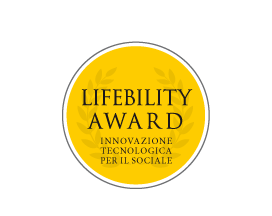LB11.115F_MASKPOINT
Per partecipare al concorso i progetti vanno inviati entro:
di Serena Mangini, Carolina Massone e Francesco Giacomo Scaglia

Con la diffusione del Covid-19 le mascherine sono diventate parte integrante della nostra vita ormai da più di un anno. Molti esperti sostengono che l’emergenza legata a questa pandemia non cesserà prima del 2022 e che in ogni caso continueremo a dover usare le mascherine per tutto il 2021.Aldilà della situazione pandemica, questi dispositivi di protezione non servono solamente a prevenire il contagio da Coronavirus, ma anche a proteggersi da numerose malattie infettive, a partire dalle più comuni influenze stagionali. Le mascherine sono talmente diffuse da portarci a pensare che molte persone avranno interiorizzato il comportamento di indossarle in luoghi affollati, anche una volta terminata l’epidemia da Coronavirus.Su questa base nasce il nostro progetto MASKPOINT, un punto situato nei posti tipicamente più affollati dalle persone come stazioni ferroviarie, sale d’attesa dei Pronto Soccorso ecc, dove è possibile sia smaltire correttamente le mascherine usate sia acquistarne una nuova. La nostra mission è quella di facilitare la raccolta delle mascherine utilizzate avvalendosi della teoria dei nudge e ridurre l’impatto ambientale delle numerose mascherine che vengono usate ogni giorno e purtroppo spesso disperse nell’ambiente. Allo stesso tempo vogliamo incentivare l’utilizzo e il corretto ricambio di questi dispositivi, in grado di proteggere noi stessi e chi ci sta vicino.
ENGLISH
Analyzing the multiple problems born with the covid-19 pandemic, we focused on the environmental damage caused by the use of masks, during the past year and a half. Because of the worldwide spread of these devices, and the need for their continuous replacement to ensure effectiveness (especially if we think about surgical ones), recent estimates state that about 3 million masks are used every minute. Unfortunately, a high number of masks is dispersed into the environment, contributing heavily to the problem of pollution. Furthermore, most of the masks are composed of polyesters’ layers and propylene fibers, that release harmful microplastics in the environment. To counter this phenomenon, we decided to use the Nudge Theory (nudging), which deals with within behavioral economics’ file, and which was previously studied by a member of the team, during his university career. Nudging is currently an established theory, with a great validity; thousands of studies and experiments have been carried out in this field, and practical uses are increasingly frequent (although they are still not very widespread in Italy). Between the biggest supporters of this theory, there is the Nobel Award in economics , Richard H Thaler. The Nudge Theory is mainly based on the possibility of influencing people’s choices of individuals using psychological encouragement known as ‘kind push’, without any recourse to impositions or obligations. The possible uses are many: from marketing to finance and politics, but probably the most useful field is the social one. Our idea is to install special collection bins for used masks, encouraging people to throw them into our binders, using nudging. in particoular, we thought to ask a simple question, which can involve every citizens. any user can ‘answer’ simply by throwing their used mask into the space which represent the favourite option. This mechanism would act as an incentive for correct masks’ disposal and it would facilitate collection for operators involved in waste management. No team member has so far participated in a startup contests.
